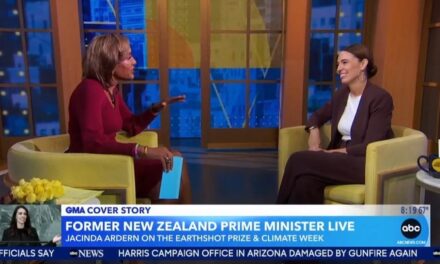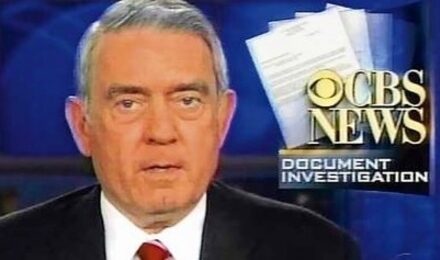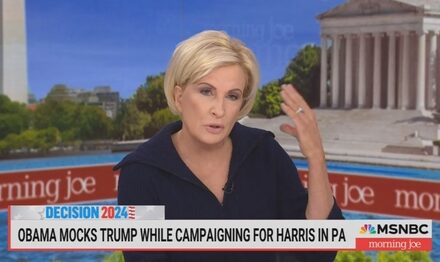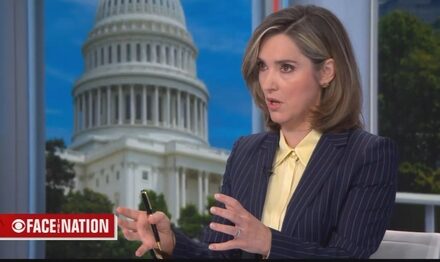We support our Publishers and Content Creators. You can view this story on their website by CLICKING HERE.
Both the polls and prediction markets suggest Donald Trump has at least an even (or better!) chance of re-taking the White House on Election Day. That alone demonstrates the former President’s remarkable political staying power — especially because, at this point in the 2016 election, the liberal media were sure that their months of hostile negative coverage had succeeded in destroying the Republican presidential candidate’s chances of winning.
Eight years ago, broadcast evening news viewers were deluged with negative stories about Trump: the infamous Access Hollywood tape; charges of mistreatment from various women; his refusal to release his private tax returns; his allegedly insensitive or racist rhetoric; and his supposed lack of temperament for the presidency.
A compilation of evening news coverage from that fall looks and sounds a lot like what’s being served up this year. Viewers heard Trump accused of “racial insensitivity,” “lewd” and “vulgar” behavior, of being someone who “doesn’t understand world affairs.” Trump’s campaign speeches fomented “outrage,” and his rallies had been “swallowed by fear, anger and misinformation.”
Thanks to Trump, “[Republicans] may be staring at a total collapse of the party by Election Day,” NBC’s Chuck Todd predicted eight years ago. Watch:
Across the wider media landscape, the tone was even fiercer. “To paraphrase Henry Adams, the movement from George H.W. Bush to Donald Trump disproves Darwin,” ex-Newsweek editor Jon Meacham sneered on the October 16, 2016 edition of CBS’s Face the Nation.
“You’re a mother. You’re a woman. Are you more offended by the phrase ‘average Americans’ or ‘grabbing a woman’s genitals?’” MSNBC’s Stephanie Ruhle scolded Trump campaign manager Kellyanne Conway on MSNBC Live, October 19, adding: “I don’t let my kids watch Donald Trump in the fear that he will say to a woman in the audience, ‘You’re fat.’ In fear, that he’ll make fun of someone with special needs. I don’t ever want my kids to say that.”
That evening, MSNBC’s Joy Reid painted Trump’s concerns about voter fraud as racist. “It is a dog whistle to people who want to believe that African Americans are cheating. The dog whistle to the far right, the Breitbart crowd….It is feeding the Breitbart people who feel that black people are stealing our elections.”
Following the final presidential debate that night, the Huffington Post’s Howard Fineman fretted: “There was a casual contempt in Donald Trump’s voice for 225 years of American political tradition. Donald Trump is a force for chaos. He always has been. If he can’t take something and win something himself, he will destroy that thing and make it impossible for other people to have it….[Trump] is saying that if ‘I can’t have the presidency, I’m going to make it not worth Hillary’s time to have it.’”
On CNN International’s Amanpour the next day (October 20), filmmaker Ken Burns, a fixture on taxpayer-subsidized PBS, wailed: “I don’t recognize my country anymore. This is so terrifying. I think this is an existential moment for the United States of America. I think this is the greatest threat since the Cuban missile crisis and the Second World War….The Trump campaign is taking a play, their playbook is out of the National Socialist party in Germany.”
“This campaign is now about a neo-fascist — I keep coming back to that — sociopath….He is setting himself up as the head of….a real neo-fascist movement,” journalist Carl Bernstein growled on CNN’s New Day October 21. “Is there going to be remnants of a neo-fascist movement that he leads in this country after this election? It’s a dangerous thing. We’re in a dangerous place.”
“[Trump’s] most recent comments about the legitimacy of the election, with their whiff of Third-World tumult, have perversely made some immigrants feel right at home,” New York Times reporter Yamiche Alcindor wrote in an article that appeared the next morning. “In their minds, they said, questions about a president’s legitimacy were inseparable from chaos and bloodshed, and thus they could not stop themselves from thinking the worst.”
“Maybe this party needs to crash and burn. This version of the Republican Party needs to die,” New York Times columnist Tom Friedman demanded on that Sunday’s Meet the Press (October 23). “So out of the ashes, just as a new Democratic Party came out of the post-McGovern, post-Dukakis era, that we will get a Democratic Leadership Council movement, a sane Republican Party.”
“The man [Trump] is a bigot,” ex-MSNBC anchor Keith Olbermann thundered on GQ.com’s The Closer. “He has shown no commitment to free elections in this country, he is a bully with severe anger management problems, combined with a desire to have and use nuclear weapons. And he’s not running for president, but for dictator.”
By late October, the media seemed to genuinely believe that their attacks had worked. On the October 23 World News Tonight, correspondent Jonathan Karl noted that Democrat Hillary Clinton had a lead among men as well as women: “If those numbers remain anything like that, you could be looking at not just a loss, but a blowout.”
The next night, October 24, CBS Evening News anchor Scott Pelley warned: “Time is running out for Donald Trump….No candidate down this far this late has ever recovered.”
Two days later, Karl was back on Good Morning America: “Donald Trump is down 17 points among women. You do not get elected President of the United States if you are down 17 points among women.”
By November 2, NBC’s Chuck Todd advised Nightly News viewers that Trump “can win all the battleground states, sweep out west, Florida, North Carolina, Ohio, and he would still come up short.”
Moments later, campaign strategist Nicolle Wallace tried to slap down any remaining hope that was left on Team Trump: “Here’s the cold hard truth for them: The best case scenario, if they do everything right, they lose with 266 electoral votes. Here’s a compilation of the media’s October 2016 election predictions:
Just six days later (November 8, 2016), Trump won 304 electoral votes to Clinton’s 227, becoming the 45th President of the United States. As many of the same liberal reporters and pundits pour forth venomous anti-Trump coverage that sounds a lot like what they were saying eight years ago, the question: Why do they think it will be different this time?
For more examples from our flashback series, which we call the NewsBusters Time Machine, go here.

 Conservative
Conservative  Search
Search Trending
Trending Current News
Current News 





